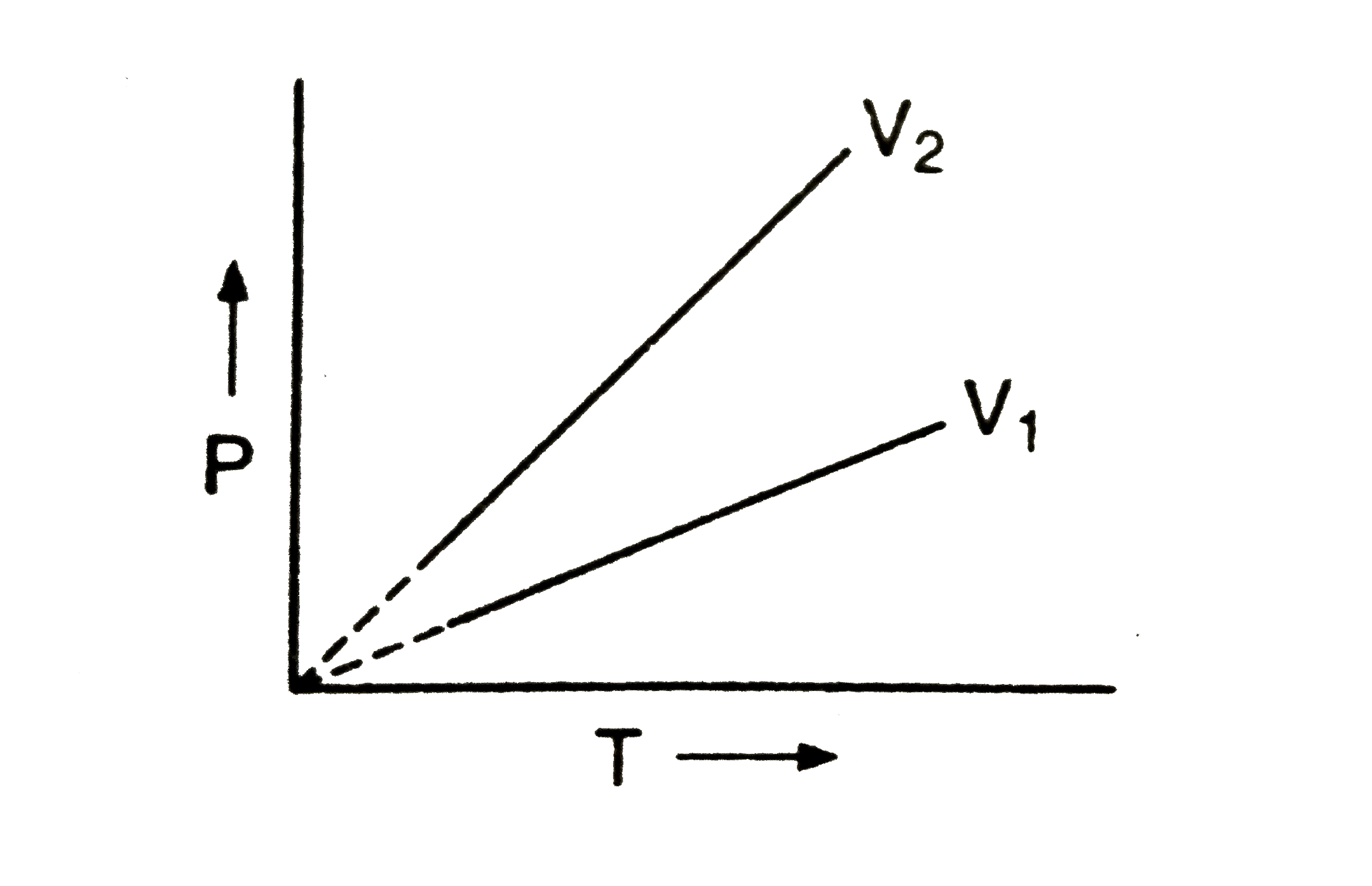An ideal gas of certain mass is heated in a small vessel and then in a large vessel, such that their volume remains unchanged. The curves are :
parabolic with same curvature
parabolic with different curvatures
linear with same slope
linear with different slope
The correct Answer is:D
Straight lines with different slopes will be obtainer

Topper's Solved these Questions
- STATES OF MATTER (GASES AND LIQUIDS)BOOK - OP TANDONCHAPTER - STATES OF MATTER (GASES AND LIQUIDS)EXERCISE - Assertion-Reason
10 Videos
- STATES OF MATTER (GASES AND LIQUIDS)BOOK - OP TANDONCHAPTER - STATES OF MATTER (GASES AND LIQUIDS)EXERCISE - Matrix Matching type questions
7 Videos
- STATES OF MATTER (GASES AND LIQUIDS)BOOK - OP TANDONCHAPTER - STATES OF MATTER (GASES AND LIQUIDS)EXERCISE - Set 2
40 Videos
- SOLUTIONS (GENERAL AND COLLIGATIVE PROPERTIES)BOOK - OP TANDONCHAPTER - SOLUTIONS (GENERAL AND COLLIGATIVE PROPERTIES)EXERCISE - Self Assessment
31 Videos
- STATES OF MATTER (SOLID STATE)BOOK - OP TANDONCHAPTER - STATES OF MATTER (SOLID STATE)EXERCISE - SELF ASSESSMENT Section VI
3 Videos
Similar Questions
An ideal gas of molar mass M is contained in a tall vertical cylindrical vessel whose base area is S and height h. The temperatuer of the gas is T, its pressure on the bottom bass is p0. Assuming the temperature and the free-fall acceleration g to be independent of the height, find the mass of gas in the vessel.
View SolutionA piece of ice is floating in a glass vessel filled with water. Then prove that level of water in the vessel remains unchanged after melting of ice.
View Solution
Knowledge Check
A closed vessel of fixed volume contains a mass m of an ideal gas, the root mean square speed being v. Additional mass m of the same gas is pumped into the vessel and the pressure rises to 2P, the temperature remaining the same as before. The root mean square speed of the molecules now is :
AV√2Bv√2C2vDvAn open vessel at 27∘C is heated untill two fifth of the air (assumed as an ideal gas) in it has escaped from the vessel. Assuming that the volume of the vessel remains constant, the temperature at which the vessel has been heated is :
A500∘CB500KC750∘CD750KA certain mass of an ideal diatomic gas contained in a closed vessel to heated it is observed that the temperature remains constant. However, half the amount of gas gets dissociated. The ratio of the heat supplied to the gas initial internal energy of the gas will be
A1:2B1:4C1:5D1:10
A certain mass of a gas was heated in a constant volume vessel, its P-T curve is 1, similarly alnother mass of the gas was heated in the same vessel , its P-T curve is 2. if tan β=2 tan α what is the ratio of masses of gas in the two experiments?

View SolutionTwo identical vessels A and B contain masses m and 2m of same gas. The gases in the vessels are heated keeping their volumes constant and equal. The temperature-pressure curve for mass 2m makes angle α with T-axis and that and for mass m makes an angle β with T-axis then
View SolutionA gas is enclosed in a vessel at a pressure of 2.5atm. Due to leak in the vessel., after some time the pressure is reduced to 2atm, temperature remaining unchanged. The percentage of gas that has leaked out is
View SolutionAn open vessel at 27∘C is heated until 3/8th of the air in it has been expelled. Assuming that the volume remains constant, calculate the temperature at which the vessel was heated
View SolutionAn ideal gas at pressure P and temperature T is enclosed in a vessel of volume V. Some gas leaks through a hole from the vessel and the pressure of the enclosed gas falls to P'. Assume that the temperature of the gas remains constant during the leakage. What is the number of moles of the gas that have leaked ?
View Solution
